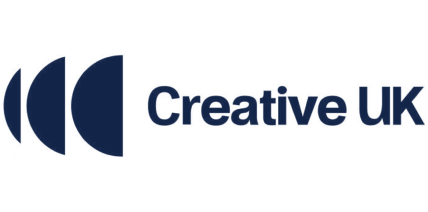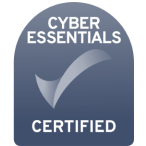I come into contact with people starting a new business on a daily basis. Some go on to make it work… and some don’t.
But what makes a business work? And what are some unexpected things that founders and directors run into when starting a business? At WWCreative, we’ve heard a lot from our clients, and we know all the ins and outs of struggles for start-ups.
So, in this blog post, I gathered you 10 ultimate tips for start-ups that I think everyone could benefit from. Oh, and more thing! There’s +1 really useful, creative advice at the end, so stay tuned 😉
Table of contents
- 1. Don’t be afraid to fail
- 2. Check for sustainability
- 3. Get to market ASAP
- 4. Identify new business skill sets
- 5. Top tips for start-ups? Be patient!
- 6. Get everything in writing
- 7. Network, network, network
- 8. Study the market
- 9. Keep an eye on the spending
- 10. Have a business plan – stick to It
- Creative top tips for start-ups and entrepreneurs
1. Don’t be afraid to fail
Failure is part of the journey – it’s a quote you might’ve heard a thousand times, but it’s still true!
No matter how much planning you do, things will go wrong—and that’s okay. Each mistake is a chance to learn and improve.
I once worked with a designer who poured their heart into a new line of products, only to see them flop. But what did they do? Instead of giving up, they adjusted their designs based on customer feedback and eventually built a loyal client base. My experience is that the most successful entrepreneurs aren’t the ones who avoid failure but the ones who get back up, adapt, and keep moving forward – ever seen Rocky talk about it life and motivation?
Creatives and authors have a wonderful way of illustrating things, and when they work hard, legendary scenes like this appear:
Rocky really has some tips for start-ups even, right? So, if something doesn’t work out as planned, take a deep breath, figure out what went wrong, and use it to your advantage next time!
2. Check for sustainability
Before you start, ask yourself: can this idea last?
Sustainability isn’t just about finances; it’s all about whether your business can survive market changes, customer demands… and even your own motivation.
Think long-term.
What’s your end goal, and how will you keep things running smoothly? A business that can’t adapt might struggle to stay afloat.
3. Get to market ASAP
I used to be a perfectionist. I wanted to perfect every little detail of every project before launching, but spending too much time tweaking can delay your progress.
Focus on creating a minimum viable product (MVP) and get it out there. Test it with real customers, gather feedback, and refine as you go. The sooner you’re in the market, the sooner you’ll start learning what works and what doesn’t.
A job done is a job done, and you’ll have to adapt either way.
4. Identify new business skill sets
Starting a business in the creative industry often means wearing many hats. Take a moment to evaluate your strengths and weaknesses.
Are you great at design but clueless about bookkeeping? Fantastic at networking but terrible at admin? Identifying what skills you need to make your business work is key. You could even take a strength & weaknesses test to see what you’re good in, and where you need to improve.
Don’t hesitate to outsource or learn what you’re missing.
5. Top tips for start-ups? Be patient!
Building a successful business takes time. Believe me, I know all about it.

Results won’t happen overnight, and that’s normal. It’s easy to get frustrated when things aren’t moving as quickly as you’d hoped, but patience is key. I’ve watched a small branding agency grow from working out of a spare bedroom to landing big-name clients—but it took them 5 (!) years.
Focus on consistent effort, small wins, and steady progress—they all add up. The businesses that last are usually built over years, not weeks.
6. Get everything in writing
Handshakes and verbal agreements are natural, especially in creative circles, but they’re not enough.
Please, please, please always document the important stuff—contracts, payment terms, project scopes, and partnership agreements! It won’t only help us help you, but you won’t get in trouble because you’ll have everything on paper.
Believe me, we can’t help you or give you advice if you only had verbal agreements.
It protects everyone involved and helps avoid misunderstandings down the line. If it matters to your business, get it in writing!
7. Network, network, network
The creative industry thrives on connections.
Networking can open doors you didn’t even know existed.
I’ve seen people do the best they could—great strategy, great content, great market. But what they didn’t do was networking. They missed out on opportunities simply because they weren’t attending events or conferences in their industry.
Attend industry events, join online communities, and don’t be afraid to introduce yourself. The best connections often come from simply showing genuine interest in others.
8. Study the market
Who are your customers? What do they need? What’s missing in the market that you can offer?
Spend time researching trends, competitors, and customer behavior. The more you know about the market, the better you can position your business for success. You could start with exploring how others spend their time on social media, and maybe you’ll even use some of their tips for start-ups.
9. Keep an eye on the spending
Cash flow can make or break a start-up.
When you’re just starting, every penny counts. Keep track of your expenses, avoid unnecessary spending, and plan for unexpected costs. Invest in tools or people that will genuinely help your business grow, but always stay mindful of your budget.
10. Have a business plan – stick to It
A business plan doesn’t need to be complicated, but it does need to exist. Outline your goals, strategies, and how you’ll measure success.
It’s your roadmap—something to refer to when things feel uncertain. I once met a group of filmmakers who had fantastic ideas but no clear plan, and their projects quickly ran out of steam.
Flexibility is really important in creative sectors, but sticking to your plan helps you stay focused and make informed decisions.
(Also, did you know that dressing for the first meeting is really important to make a good first impression?)
Creative top tips for start-ups and entrepreneurs
And here’s that bonus advice after sharing all of these top tips for start-ups: get professional advice on the things that matter!
Some things, you can do yourself – like basic marketing, networking or bookkeeping. But some things you need to pay for. And that’s where we come into the picture: accountants and lawyers will get you on the correct legal and tax setup. It’s definitely worth it in the long-term.
Just submit your details, and book your one-hour session now!







